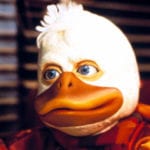 History
History  History
History  Weird Stuff
Weird Stuff 10 Fascinating Things You Might Not Know About Spiders
 Food
Food 10 Everyday Foods You Didn’t Know Were Invented by the U.S. Military
 History
History 10 Odd Things Colonial Americans Kept at Home
 Weird Stuff
Weird Stuff 10 Superstitious Beliefs That Once Consumed Entire Cultures
 History
History 10 Bizarre Friendly Fire Incidents in Military History
 Technology
Technology 10 Modern Technologies That Accidentally Imitate Ancient Magic
 Mysteries
Mysteries 10 Mysteries of the Human Genome
 Weird Stuff
Weird Stuff 10 Things So Rare They’ve Only Been Found Once
 History
History 10 Legends Whose Last Moments Undid Their Glory
 History
History 10 Great Escapes That Ended Right Back in Captivity
 Weird Stuff
Weird Stuff 10 Fascinating Things You Might Not Know About Spiders
 Food
Food 10 Everyday Foods You Didn’t Know Were Invented by the U.S. Military
Who's Behind Listverse?

Jamie Frater
Head Editor
Jamie founded Listverse due to an insatiable desire to share fascinating, obscure, and bizarre facts. He has been a guest speaker on numerous national radio and television stations and is a five time published author.
More About Us History
History 10 Odd Things Colonial Americans Kept at Home
 Weird Stuff
Weird Stuff 10 Superstitious Beliefs That Once Consumed Entire Cultures
 History
History 10 Bizarre Friendly Fire Incidents in Military History
 Technology
Technology 10 Modern Technologies That Accidentally Imitate Ancient Magic
 Mysteries
Mysteries 10 Mysteries of the Human Genome
 Weird Stuff
Weird Stuff 10 Things So Rare They’ve Only Been Found Once
 History
History 10 Legends Whose Last Moments Undid Their Glory
10 Horrifying Realities From The World Of Asian Pop Music
Pop music from Korea, Japan, Hong Kong, China, and Taiwan is becoming increasingly popular on the world stage. Japan, the world’s second-largest music market, is known for its “wacky” and entertaining music videos, while K-pop is riding the government-funded Korean Wave and crashing on the cultural shores of greater Asia and beyond. But behind the clean-faced and beautiful men and women singing and dancing to sophisticated pop tunes (usually written by Scandinavians, funnily enough), is there a well of darkness and horror? Of course there is; there always is.
10 Sasaeng Fans
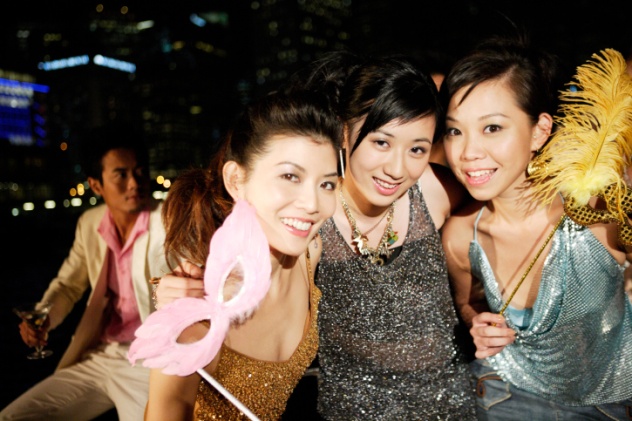
K-pop idol worship attracts millions in South Korea and beyond, but some take it a little too far. Sasaeng fans, or “private fans,” are generally females between the ages of 13 and 22 whose obsessions with their favorite pop idols reach unhealthy levels. One overzealous fan of 2PM’s Taecyeon sent him a letter written in her own menstrual blood, reading:
“I dedicate to Taecyeon my period blood letter
Ok Taecyeon, You cannot live without me
Sprinkled with a few strands of my pubes”
JYJ’s Yoochung found things getting a little too close to home when sasaeng fans either installed or hacked into cameras in his apartment complex’s parking lot, posting voyeuristic photos of his comings and goings online. The group TVXQ seems to suffer particular attention. There are reports of rabid fans copying a key to a member’s apartment, freezing and hacking into his cell phone to check if he’d called a girl, searching for his personal seal in order to register marriage documents, sneaking lingerie into his bags, and ordering food to be delivered to his house, that he had to pay for. Group members have had their hotel rooms broken into and been kissed while they were sleeping, and their family members have received deranged calls.
Sasaeng fans are highly territorial, attacking other fans who dare to get too close to or touch a pop idol. One report even has sasaeng leaving urine and feces outside the hotel rooms of K-pop stars, “marking their territory” in the words of one insider. Sasaeng fans sometimes devote their entire lives to stalking their idols, dropping out of school and turning to prostitution in order to afford special taxi services. Catering to these lunatics, these taxis drive at speeds of 200 kilometers per hour (124 mph) to keep up with music industry vans shuttling pop idols between destinations.
9 Anti-Fans
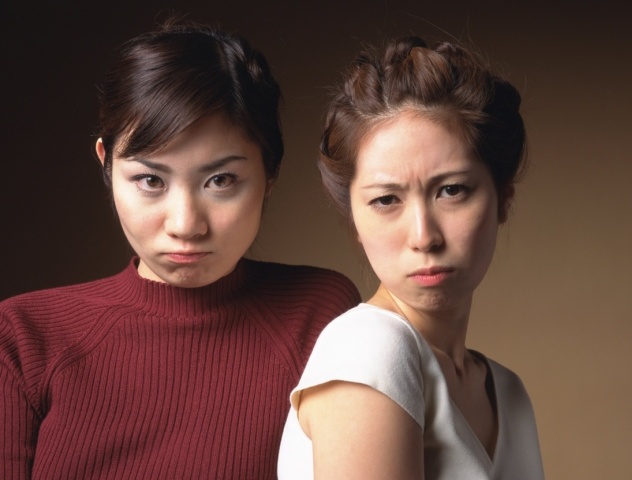
They say that hate is not the opposite of love, but rather they are two sides of the same coin. This is especially true in the case of anti-fans, who hate certain pop stars and are willing to verbally or physically attack them or their fans. This is an old phenomenon. In 1999, Gan Mi-yeon from the girl group Baby VOX received scores of letters filled with razor blades, as well as hate mail written in blood and photographs of herself with the eyes put out. The following year, Yoon Kye-sang from the group g.o.d received a drink adulterated with bleach and laundry chemicals, which was drunk by his mother, who was hospitalized. This pattern repeated in 2006, when Yunho from the beleaguered group TVXQ needed to have his stomach pumped after he was given a drink laced with an adhesive substance.
One organized anti-fan incident that was less destructive and more humorously dramatic was aimed at Girls’ Generation during the Dream Concert in 2008. Then a new act, they were the subject of rumors and hate based on their perceived arrogance. Many fans of the boy bands TVXQ, SS501, and Super Junior hated Girls’ Generation for encroaching on “their boys,” and a boycott was organized during the concert. While usually the audience is awash with colored lights during performances and cheers fill the air, when Girls’ Generation got on stage they were confronted with darkness and silence from the stands. This would become known as the “Black Ocean” incident.
8 Tablo’s Diploma
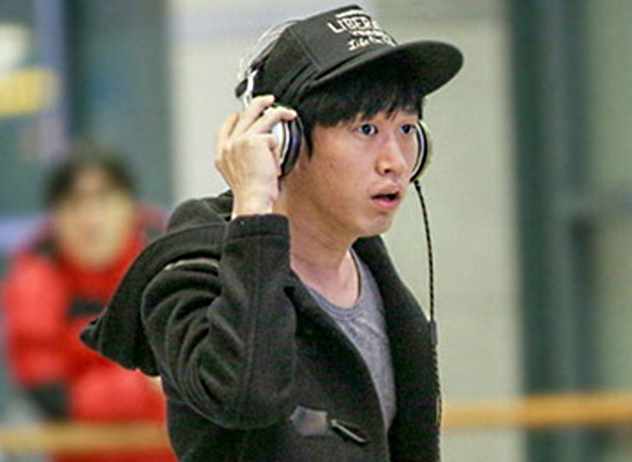
The rage of anti-fans is not limited to physical attacks or public disses. Attacks on reputation, even unfounded, can cause immense damage to individuals in Korea’s music scene. The greatest example of this is the rapper Tablo, also known as Daniel Seon Woong Lee. One of the most prominent figures in the Korean hip-hop scene, he came under sudden attack after announcing his engagement to actress Kang Hye Jung.
There had been a recent wave of fake diploma scandals in South Korea, and an anti-fan online group appeared, named TaJinYo, a Korean acronym standing for “We Request the Truth from Tablo.” The group claimed that the rapper’s diploma from Stanford University was a forgery. When Tablo released his university transcript to the media and was publicly vouched for by Stanford registrar Thomas Black, the anti-fans turned to conspiracy theory, claiming that Tablo stole the identity of another Korean Stanford graduate named Dan Lee, an engineer in Wisconsin bemused by the whole thing.
The anti-fans then turned their rage against Tablo’s family, accusing his mother of faking a gold medal win at an international hairstyling competition in 1968. (She didn’t, but the news report that claimed she had was an error that she herself cleared up.) So many threatening phone calls were made to Tablo’s brother David that he lost his job with a public broadcaster. Tablo left his label, Woolim Entertainment, when they hung him out to dry, saying, “We have nothing to say about allegations against Tablo that he had fake education qualifications.” The situation became so intolerable that the rapper was receiving threatening messages on Twitter, being yelled at in the streets, and began to fear for the safety of his newborn baby.
It took an investigative report on the TV channel MBC and the results of a prosecutor’s investigation to finally clear Tablo’s name. Prosecutors issued a warrant for the arrest of TaJinYo’s chief ringleader, who turned out to be a 57-year-old Korean-American businessman living in Chicago. He has defied the warrant, claiming indignantly that libel isn’t an international crime. Tablo was left shell-shocked and suffering from stage fright, a testament to his Kafkaesque encounter with the howling Internet hate mob.
7 Sexual Abuse Of K-Pop Trainees

For many young women in Korea, becoming a K-pop idol is a dream. But once they sign a contract with an entertainment company, they find there is a lot more to pay than just hard work and persistence. Female trainees are traded by brokers and are allegedly brought to bars and forced to engage in sexual work to get ahead, even if they are still minors. One ex-trainee claimed in an interview that the going rate for a “meeting” with a female trainee was $220, while very young trainees, or those signed with a prominent label, cost between $700-900.
In 2010, Taiwanese singer Estrella Lin claimed that when she was a member of girl group 3EP Beauties, her agency bartered her body to potential investors. She said this is an open secret throughout the Korean entertainment industry, and actresses and singers are expected or forced to give sexual services in order to get advancement opportunities. In 2002, Jang Seok-woo, CEO of Open World Entertainment, was arrested for not only sexually abusing female trainees, but encouraging male idols in his employ to do the same. Aphrodisiac substances were administered to trainees, some of whom were underage. Open World Entertainment would go on to issue a public apology for “causing disappoinment,” with a conspicuous absence of any reference to the victims of the abuse.
6 Johnny Kitagawa

A Los Angeles–born former US Marine who elected to stay in Japan after his tour, Johnny Kitagawa is the Grand Old Man of the Japanese pop autocracy. Since founding his label, Johnny’s Jimusho (“Johnny’s Office”), in 1968, Kitagawa’s collections of plastic-coated interchangeable boy bands have dominated Japan’s airwaves. Bands such as Kinki Kids, V6, Hey! Say! JUMP, and SMAP may not have done very well in terms of international recognition, but they were big in Japan. For “Johnny’s Boys,” joining his stable means undergoing a rigorous vetting process followed by an extremely rough gig, with little rights to royalties or even control of their own band names.
Kitagawa maintains the illusion of diversity by backing artists and releasing albums through a variety of sub-labels, masking a web of monopolization with himself in the center. He is the most powerful force in the insular Japanese music industry, the second-largest in the world. He holds immense power over advertisers, television stations, and magazine publishers, whom he can push around to prevent them from hiring from rival agencies or force them to cover up scandals. That’s how terrified they are of being boycotted by his powerful agency.
But it gets worse: Kitagawa has always preferred to sign and promote artists who are “easier to handle,” which turns out to be code for being willing to submit to his sexual advances. In 1988, Kita Koji, former member of the boy band Four Seasons, published an expose accusing Kitagawa of sexual harassment and rape. Despite more accusations arising in the intervening decades, Kitagawa has weathered the storm with the help of libel suits and the willful ignorance of the Japanese public.
5 No Dating
In 2013, Minami Minegishi of the J-pop group AKB48 shaved her head and appeared on a YouTube video in tears, begging for forgiveness. Her crime? Having a boyfriend. Japanese idol management agencies typically force their performers to sign “no dating” agreements in their contracts. Shukan Bunshun magazine released photos of Minegishi leaving the house of boy band member Alan Shirahama in a baseball cap and surgical mask in a failed attempt to hide her identity. She was demoted by her agency and induced to produce her elaborate public apologies. These morality standards are in place despite the fact that AKB48, which Minegashi joined when she was 13, is known for songs filled with sexual innuendo like “My School Uniform Is Getting in the Way.” The group’s theme is based on the concept of “forbidden love,” which involves the sexual exploitation of minors and even horrifying and boneheaded incidents, like singer Tomomi Kasai appearing topless in a photo book with only a child’s hand covering her genital region, which prompted a child porn investigation. Given all this, banning the singers from having boyfriends on moral grounds doesn’t stand to reason.
These rules are also misogynistic, as male J-pop idols are not held to anywhere near the same standards. Male idols have been revealed as dating porn stars and even being drunk, naked, and screaming at police in a park, only to find the incidents as nothing more than minor speed bumps in their careers. More recently in 2015, Miho Yuki and Sena Miura of the group Aoyama St. Hacha Mecha High School were kicked out of their band by their agency when it was revealed they were dating fans. The agency, Moving Factory, went even further by suing the girls, their legal guardians, and even their boyfriends, which has finally generated some backlash against the draconian policies.
4 Slave Contracts

Japan isn’t the only country with strict stipulations in their pop music contracts. For years, Korea has been notorious for its “slave contracts,” signed between major labels and their artists. These contracts force individuals to remain with a certain label for years at a time, up to 13 in some cases. The rationale for the contracts is to ensure that management agencies can recoup the cost of training their stars, including the costs of vocal coaches, choreographers, stylists, make-up artists, accommodation, living expenses, and staff payments. The contracts also stipulate extremely long and intense hours of work, in stark contrast to lazy, mooching pop stars in the West. This is justified as a way of ensuring that only those who “really want it” will make it through.
SM Entertainment, one of the largest Korean music labels, has had a series of legal challenges to its contractual policies. In 2009, former Super Junior member Han Geng claimed that the company forced him to do things he didn’t want to do under threat of fines if he disobeyed and denied him sick leave when he developed gastritis and kidney problems. The same year, the members of JYJ, who had been part of the five-man group TVXQ, claimed that SM’s 13-year contracts were virtually life-long contracts, while profits were unfairly distributed and they were worked to their physical limits on only four hours of sleep per night.
These disputes were settled, but in 2012, EXO-M’s leader Kris filed a lawsuit to get his contract annulled due to the company’s neglect of his opinion and health: “The company has treated me like a machine part or as an object of control rather than presenting a vision as an entertainer.” In 2009, Korea’s Free Trade Commission introduced “standardized contracts,” meaning they could no longer exceed seven years. However, problems persist, such as profit sharing being solely in the hands of the management agencies and artists forced to pay exorbitant penalties to terminate their contracts.
3 Racism
Despite the artistic and stylistic influence that African-American culture has had on pop music in Korea and Japan, both music scenes have had repeated issues with regurgitated racist tropes. Pop singers and entertainers appearing in blackface is basically a standard gag on variety shows in both Japan and Korea.
In 2012, Korean-American K-pop songwriter Jenny Hyun posted a Twitter diatribe in response to this tweet by Floyd Mayweather: “Jeremy Lin is a good player but all the hype is because he’s Asian. Black players do what he does every night and don’t get the same praise.” Hyun’s insane responses compared black people to “sub-human, ungrateful apes” and “CANCER” and called for the eradication of the black race.
Racism against other Asians is also common. In 2010, three members of the J-pop girl group Morning Musume uploaded photos of themselves deliberately slanting their eyes, with the caption, “Who’s this? A Korean person.” Morning Musume is managed by the same agency managing the group °C-ute, who appeared on a late night show for Tokyo TV talking about Adolf Hitler being one of “History’s Great People,” referring to him as “Uncle Hitler” and drawing an adorable caricature of the murderous dictator. Meanwhile, in Korea, there is often racism against Chinese singers who make it big in the K-pop world. Miss A’s Fei experienced this during her debut: “I was asked, ‘Do you shower only once per week?’ It was embarrassing. I said, ‘I shower every day. You think Chinese people don’t shower?’ But that’s what they thought. I couldn’t believe it.”
2 The Training Factory

Some K-pop stars are recruited young by agency talent scouts whose job is to roam around looking for attractive children. Others are recruited through tryouts, both in Korea and abroad. Some television programs specialize in this, such as Superstar K, a televised singing competition for which 4 percent of the South Korean population tried out in 2012.
However they get in, the next step is a military-style training program, first developed by Johnny Kitagawa in the 1980s and later perfected by the K-pop machine. It is an extremely grueling period, sometimes lasting years, in which trainees hone their skills while desperately waiting for their debuts to be announced.
According to one Singaporean woman who was picked out at a mass audition by a Korean talent scouting firm, trainees are expected to work 14-hour days to practice gym, dance, swimming, and singing. Breakfast is limited to low-fat biscuits, bananas, and lettuce. Chicken breast and salad are served for dinner, and no water is allowed after 7:00 PM to prevent “bloatedness.” Trainees are accompanied into the bathroom by a minder and made to wear sunglasses at all times. One part of the process of becoming a K-pop is extensive plastic surgery, which is so common in the K-pop industry that an entire website exists documenting before and after shots of idols’ surgical procedures.
1 Edison Chen
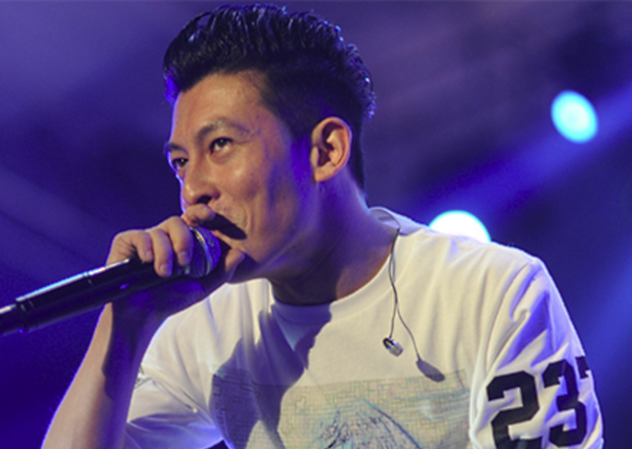
Just when you thought this entire list was just about Korea and Japan, we turn to Hong Kong. Sex scandals are a pretty big deal in the world of Asian pop music, which is fairly conservative, but in general, they are usually pretty boring and not particularly horrifying. Edison Chen’s storied career of debauchery may be the exception.
In 2008, the Hong Kong pop idol took his laptop in for repairs, and a technician discovered sexual photos of Chen with a number of female pop stars and actors. They were then uploaded in a phased rollout to bulletin boards in Hong Kong, Taiwan, and mainland China by a mysterious user under the handle “Kira,” a reference to the Japanese anime Death Note. Kira taunted the Hong Kong police, even as eight people were arrested for alleged involvement with the leak.
The scandal’s fallout was utter madness and ruined the lives and reputations of many of the women photographed. Bobo Chan lost media contracts, product endorsements, and her engagement, later fleeing to the US and leaving the entertainment world for good. Actress Gillian Chung contemplated suicide. For his part, Edison Chen apologized, temporarily left show business, and fled to North America, which was probably a good move as it was reported that a triad leader was offering $91,000 to anyone who could hack off one of Chen’s hands. He only returned to Hong Kong to act as a witness after he was guaranteed 24-hour protection by the police, who surrounded his car with a phalanx of uniformed officers to protect him from the press and entertainment industry–linked triads bent on righteous retribution. After Chen made some public appearances in Singapore in 2009, Hong Kong station Cable TV received a golden bullet and a letter in English warning him not to appear in public after April 4, reading: “We hope Edison Chen will take this warning seriously, otherwise his personal safety will be threatened.”
He eventually did return, but he didn’t seem to learn much from the experience. In 2011, he became involved in yet another sex-photo scandal, this time with 16-year-old model Cammi Tse. Photos of 31-year-old Chen hugging and kissing the girl were posted online, along with text messages where Chen asked Tse to pose in photos wearing swimsuits and her school uniform. Tse would later claim that she lost her virginity to Chen while he filmed it and that he dumped her via a press conference after the photo-leak scandal.
David Tormsen’s debut K-pop single “Be My Boshintang Butterfly, Baby” crashed and burned in the charts, but he’s not bitter.








